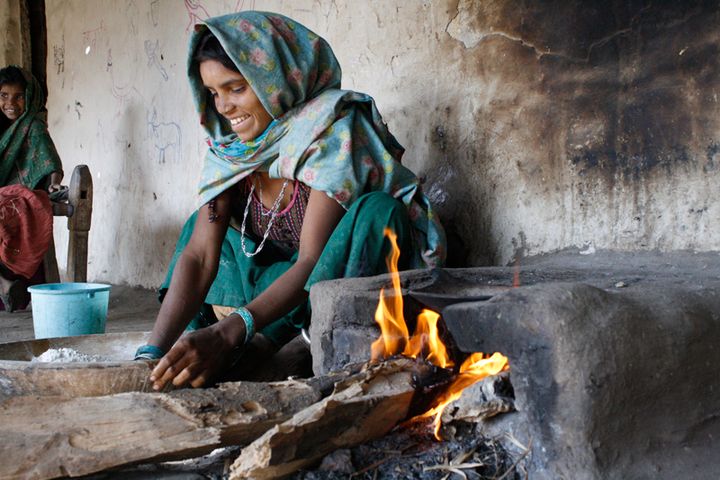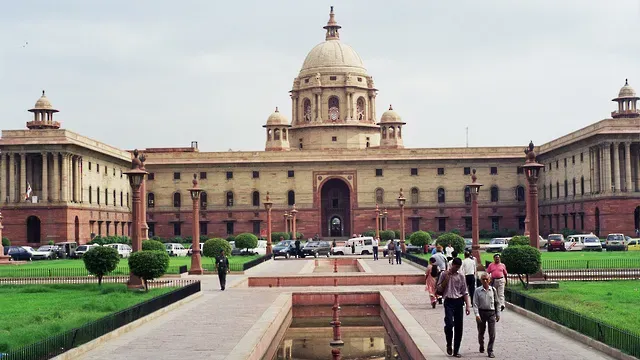Beyond the Biden climate summit
And how India can play a crucial role in new models of climate diplomacy

Welcome to today’s Lights On, a newsletter that brings you the key stories and exclusive intel on energy and climate change in South Asia.
Once again I hope you will spare a thought for the millions who are suffering in India due to the brutal Covid wave from which there's no end in sight. If you can, please consider a donation to help purchase life saving oxygen concentrators for patients and hospitals.
If you want to receive this newsletter every week, you can subscribe below:
Last week’s Leaders Summit on Climate, organised by US President Joe Biden ahead of the next round of UN climate talks in November, meant very different things to the 40 countries invited to take part.
For the US, it was an attempt to restore international trust after the previous administration had pulled the country out of the Paris Agreement. It was also a message to American citizens that the president takes climate change seriously and intends to reverse much of the damage done by the previous administration on this front.
But for developing countries like India, the conversations held at the global table are very different from those happening at home. Year after year, the mainstream narrative sees developing countries asking for more “finance”, and rich nations dragging their heels. But beyond the media soundbites, is the famous $100 billion a year – long promised and still not delivered by developed countries – all that’s needed to solve the problem? And are developing countries really that helpless in the face of the climate crisis?
Beyond the $100 billion
“If we all speak for the planet, rather than with our national flags on, we're clearly nowhere near where we need to be [in terms of finance]”, says Arunabha Ghosh, CEO of the Delhi-based nonprofit Council on Energy, Environment and Water. “However, statements that promise long term objectives are only going to remain statements, if they are not backed up with either changes in domestic policy, or legislation, or inflow of finance.”
For 2021 to be different from the previous decades of fruitless debates, he says, “we have to completely stop talking about $100 billion and start talking about the trillions”. More importantly, from now on finance should be leveraged to strengthen developing economies and not deepen their dependence on foreign aid.
De-risking developing countries
We need to change how we treat risk, Ghosh explains. There's no point asking emerging economies to upgrade their climate ambitions if investors continue to see them as risky destinations. The alternative cannot be to invest in other ‘safer’ areas of the world. “If we are serious about climate change,” Ghosh says, “we need to understand the arithmetic of climate change and realise that the money has to flow where the sun shines the longest, or the wind blows the hardest”. Equally, investors are not going to flock in if the business environment remains uncertain.
Realistically, the perfect combination of business opportunities, a credible central government and clients with flawless balance sheets is hard to come by. “We know markets are imperfect. But the whole point is to fix for market failures so that more finance flows into the geographies which will matter to bring down emissions.”
In India, the quest to deliver 450 GW of renewable energy capacity by 2030 – a promise PM Narendra Modi reiterated at the leaders’ summit – is fraught with roadblocks. State governments have reneged on solar development contracts in a bid to get better deals than what they had originally signed up to. New customs duties against Chinese components that still underpin much of India’s solar growth have destabilised the industry. Solar developers should not pay the price of an unstable policy environment, Ghosh says, “and that’s where you need de-risking, by pooling in projects across countries [with different levels of governance and economic stability] to lower that risk premium and improve the creditworthiness of the project”.
Project pooling is just one of the many ways in which finance can be used to attract private investments by reducing risks, but it requires an understanding of local problems that international climate talks such as the US-led leaders’ summit, or even the lengthy UN COP conferences, are not equipped to address.
A new regional paradigm
“The strategic partnership between India and the US has grown so rapidly in the last decade and India has become a pretty critical element for the US’ China hedging strategy,” says Irfan Nooruddin, professor of Indian Politics at Georgetown University in Washington and director of the South Asia Center of the Atlantic Council. As a result, he says, “ambitions for a lot of partnerships between India and the United States have grown faster than the facts support”.
“This runs the risk of allowing people like Mr Modi to make big announcements but without actually forcing India to articulate how it's going to meet any of those goals,” he says.
The notion that we can find meaningful solutions to the climate challenge simply by Washington hosting a meeting is misplaced, and the COP format is not effective either, Nooruddin says. “The UN parties have been meeting for 26 years and it's important that they talk to each other. But it's not where things get done, because in such a multilateral setting you end up diluting the conversation.”
Instead, he says, “we have to rebuild bilateral conversations first, as a way of getting to the multilateral dialogue.” At the moment, the outcome of the leaders’ summit is “a very top down agenda with the US at the centre, and all these other countries working with the US. But in the regions themselves, they're not working with each other.” What the world needs now is a set of narrower working groups at the international level, that bring countries together on issues that are pertinent to them such as oceans, energy storage, land or forests, he explains.
“And I think that's where climate diplomacy would allow countries like India to become leaders in that particular sphere, as opposed to following the cues being laid out by the US.”
That’s all for today! If you like what you read, please consider signing up for free or as a member:



